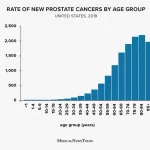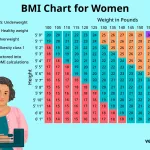Altering your diet can support healthy weight gain, such as boosting your consumption of protein, carbohydrates, and beneficial fats. You might also incorporate nuts, dried fruits, and calorie-dense shakes into your routine.
People choose to gain weight for various reasons — some are naturally slim due to genetics or a rapid metabolism. Being underweight can also reflect inadequate nutrition or underlying medical issues.
Furthermore, many individuals who are not medically underweight still aim to gain muscle and increase their body mass for aesthetic or performance reasons.
That said, putting on weight in a safe way is essential. This often involves eating more nutrient-rich foods and maintaining healthy lifestyle habits, such as getting sufficient sleep and managing stress where possible.
No matter your motivation for wanting to gain weight, there are multiple approaches that can help.
Below, we outline several practical methods that may assist you in gaining weight.

Increase your caloric intake
The key action to gain weight is to achieve a calorie surplus — consuming more calories than your body expends.
You can estimate your calorie needs with this calorie calculator.
If you prefer to gain weight slowly and steadily, aim for roughly 300–500 extra calories per day above your maintenance needs as suggested by the calculator. For quicker weight gain, target about 700–1,000 calories over maintenance each day.
Remember that calorie calculators provide only approximations. Your actual needs can differ by several hundred calories daily.
You don’t have to track calories indefinitely, but monitoring intake for a few days or weeks can help you understand your usual consumption. Plenty of useful tools exist to assist with this.
Eat more protein
Consuming adequate high-quality protein supports optimal growth, muscle development, and overall health.
A 2020 study demonstrated that increasing protein intake can help build lean muscle mass.
The Food and Drug Administration (FDA) suggests adults consume 50 grams (g) of protein per day. Individual needs vary based on factors like age, sex, and medical history.
Foods rich in protein include:
- meat
- fish
- eggs
- dairy products
- legumes
- nuts
Protein supplements, such as whey powder, can be useful if you struggle to meet protein targets through food alone.
However, high-protein diets can also be quite filling, which may make it tougher to reach your calorie goals.
Talk with a doctor to determine whether increasing protein is appropriate for safely achieving your weight-gain goals.
Increase your intake of carbs
Carbohydrates by themselves won’t automatically cause weight gain, but they are an effective way to add extra calories.
Examples of healthy carbohydrate sources include:
- oats
- quinoa
- fruits, such as oranges, bananas, and blueberries
- sweet potatoes
- buckwheat
Carbs are an important component of a balanced diet. How many you need daily depends on factors like age, sex, and health status. Generally, experts advise that 45% to 65% of your daily calories come from carbohydrates.
Eat more energy-dense foods
Including plenty of energy-dense foods in your meals is helpful. These items pack many calories relative to their weight.
Using sauces, condiments, and flavorful seasonings can make foods more appealing and easier to eat in larger quantities. Toppings and add-ons also increase calorie content.
Energy-dense foods that may aid weight gain include:
- nuts, such as almonds, walnuts, macadamias, and peanuts
- dried fruits, like raisins, dates, and prunes
- full-fat dairy, including whole milk, full-fat yogurt, cheese, and cream
- fats and oils, for example extra virgin olive oil and avocado oil
- grains, such as oats and brown rice
- meats like chicken, beef, pork, and lamb — opting for fattier cuts can add calories
- tubers, including potatoes, sweet potatoes, and yams
- other calorie-rich choices like dark chocolate, avocados, peanut butter, coconut milk, granola, and trail mix
If gaining weight is a priority, you might want to limit excessive intake of vegetables and some fruits. Their fiber can make you feel full sooner, reducing room for calorie-dense selections.
Other quick tips
Below are several additional tactics that may help you increase weight more quickly:
- Avoid drinking water before meals: Fluids can fill your stomach and make it harder to consume enough calories.
- Try weight gainer shakes: If gaining weight is difficult, consider weight gainer shakes, which are high in protein, carbs, and calories. You may also find our guide to protein shake weight gain helpful when choosing a shake.
- Use larger plates: If you’re trying to eat more, bigger plates can help, as smaller plates sometimes lead to smaller portions.
- Take creatine: The supplement creatine monohydrate can support increases in muscle weight.
- Get quality sleep: Good sleep habits are important for muscle repair and growth.
- Avoid smoking, and consider quitting if you smoke: Smokers tend to weigh less than non-smokers, and quitting often leads to weight gain.
How can I gain weight without eating too much?
To gain weight, you generally need to consume extra calories.
You can avoid overeating and encourage those excess calories to build muscle rather than fat by starting a resistance training program.
Resistance or strength training includes bodyweight moves and lifting weights. This type of training promotes muscle hypertrophy.
Pairing protein supplementation with resistance exercise can further enhance gains in lean mass beyond resistance training alone.
One study found that protein supplements taken during a course of resistance training increased lean mass gains by 27% in healthy adults.
If you’re new to exercising, consider working with a qualified personal trainer or joining a class to learn safe, effective techniques if you’re able to do so.
Talk with a doctor if you have skeletal issues or medical conditions that make exercise difficult.
Frequently Asked Questions
Consuming an extra 500 calories per day could translate to an average weight gain of about 15 pounds (6.8 kg) over six months. However, timelines vary among individuals and depend on factors like sex, age, and overall health.
There are several reasons someone may struggle to gain weight, including genetics, a naturally lean body type, or a fast metabolism.
Increasing calorie intake is often the quickest method to gain weight. Still, the best strategy depends on your unique health needs; a dietitian can design a personalized plan. For specific food ideas to increase calorie intake, see our suggestions for 18 foods to gain weight.
The bottom line
People pursue weight gain for many different reasons.
It’s crucial to aim for nutrient-dense foods and to build lean muscle mass while trying to gain weight.
Changing body weight is a long-term process rather than an overnight fix. Consistency over time is what leads to results.
If you’re unable to gain weight despite using the strategies outlined above, consult a doctor or registered dietitian. A dietitian can recommend tailored eating strategies to help you meet your goals. For more ideas on protein sources to support muscle and weight gain, you might also review our post on high protein foods.

























Leave a Reply
You must be logged in to post a comment.